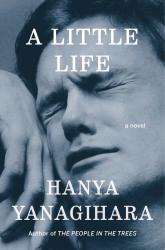
Until this book, I had not read anything that had impacted me this much. It was an absolutely heart wrenching book that was so beautifully written and was overall amazing. I love books that touch on the dark and uncomfortable parts of life and the human experience that aren't talked about very often and this is one of those types of books (check the trigger warnings before reading it because there are a lot of tough subjects in it).
A Little Life follows a man named Jude throughout his whole life. It focuses mainly on him and his friends when they met in college and follows them beyond, well into adulthood. It has flashbacks to Jude's childhood and the trauma he went through and how he coped with that trauma and how his relationships were affected. It has a strong message about friendship and has underlying themes of dealing with grief and abuse along with other tough subjects. This is hands down the best book I have read in a long time. The characters were incredibly developed and they felt real, it was one of those types of books that took me a long time to recover from after I finished it because I felt so close to the characters and the story. Even though some of the topics covered in this book are tough and uncomfortable, they are important to talk about and I recommend this book to anyone who enjoys raw and slightly gut wrenching books.
Reviewer Grade: 11
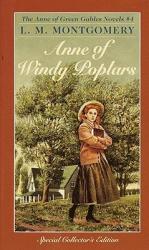
When Anne finishes her schooling at Redmond, she decides to start a new life away from Green Gables. She finds herself in her tower room at Windy Poplars, befriending two old widows, Aunt Kate and Aunt Chatty. She arrives at Windy Poplars looking for a job. She gets one as the principal of Summerside High School. Anne is then made aware that she was not the person they wanted as the principal, but they couldn’t find anyone better. Over time, Anne also becomes friends with the housekeeper, Rebecca Dew. Anne loves her students, but she greatly misses her lover, Gilbert Blythe, who is currently in medical school. Anne of Windy Poplars is a book in the Anne Of Green Gables series. It was less interesting and active than the other books, but it had a decent plot. I am a person who likes action and drama, but this novel did not satisfy me. Contrasting to the other books in the series, it was very drawn out and not very suspenseful. It left me with the urge to not continue reading. I want a book that makes me want to read more and never stop, but this did not meet those expectations. The only reason I kept reading was to keep the series going. I finally finished the book, and I’m glad I did. The storylines following Anne of Windy Poplars were much more interesting, but the books later on had flashbacks and connections to it.
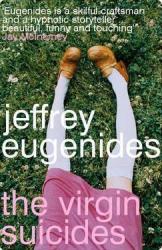
The Virgin Suicides is the elegy of the Lisbon girls, from the perspectives of the neighbors that are still haunted by them. The Lisbon family lives on a quaint suburban street in the Sun Belt, drenched in sunlight and white-washed shingles. Then one year, every Lisbon girl, starting with Cecilia and ending with Mary, commits suicide. This book is the observations and meditations of the boys across the street, the ones who loved them, who obsessed over them, who objectified them, and who watched them die one by one. The girls are doomed from the opening lines. The only question that remains is why they did it, and why our narrators can't let them go.
I read this book because I was told it was a staple of dark academia. It is not, no one here likes school. In reality, it is a treatise on girlhood, in all its insubstantial suffering. The first thing that struck me was the way the author sets the mood immediately. The entire book is dripping with malaise, the suffocating nature of sisterhood and parenthood on full display whenever the Lisbon house is described. The brief gasps of outside life are bright and crisp, while the references to the current day, middle-age life of the narrators is sad and listless. I wouldn't say this book is pleasant to read, but it is gripping in its complete commitment to its mood and setting. On that note, the choice of the author to tell the story entirely from outside perspectives was fascinating. The narrator is only described as "we", as the group of neighborhood boys who obsess over the girls in both childhood and adulthood. One conflict in the book is wondering if we are meant to sympathize with the boys who are scarred from the suicides, or see them as a commentary on the ways that the world seeks to capture and define teenage girls. I ended up seeing it as the latter, which likely made me view this book in better light than many of my peers. The boys actions always have an air of perversion about them, and at the end they seem to realize that all their breaches of privacy and decency have brought them no closer to understanding the girls. Another thing I liked about this book is the way that the girls are given a kind of privacy of thought from the narrators and the readers. Every attempt at scrutinizing their reasoning or emotions or motivations is always followed by a caveat. Nothing is certain with the Lisbon sisters, just the way nothing is every certain when we view the actions of others. The unknowability of their tight knit group gives them a dignity that their neighbors and community seem to want to violate constantly. This book is also a clear censure of suburbia. The neighbors try to do their best to help when they can, but still grumble amongst themselves about the Lisbon family leaving the leaves in their yard the fall after their youngest commits suicide. The great debutante balls and dances of the south are in full swing, but there is an undercurrent of corruption and distortion to the dancing and dating. The sexualization of the girls is also rampant, which, again, makes the book a lot harder to enjoy if you don't see it as a choice by the author in order to comment on it. In short, the suicide of the girls seems like a catharsis, a response to the disgusting and decaying world around them. Everyone around them represses their emotions, from their parents to the boys enraptured by them to their teachers to their peers. They are the only ones who get to set something free. The juxtaposition of the wailing EMTs to the quaint, straining neighborhood further demonstrates their freedom, even in their death.
This book did have problems. A lot of stuff is uncomfortable to read, even if viewed as a deliberate choice. The story often takes winding tangents that serve little purpose besides demonstrating the boredom and trivialities of suburban life. Still, the book is still a fantastic meditation on what its like to be a teenage girl, in all the wonderful and ghastly ways. I would recommend this book to anyone who is looking for good setting, shocking stories, and a good mystery to carry with them!
Reviewer Grade: 12
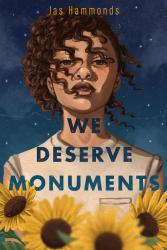
We Deserve Monuments follows a seventeen-year-old girl named Avery as her and her family leave Washington, D.C. to return to her mother's childhood home. Avery's grandmother is dying, but somehow her mother and her grandmother still can't bring themselves to reconcile over decade-old, hidden arguments. While Avery struggles to adjust to a new school and new friends, she must also try to untangle the deep roots of family resentment that could keep her family broken forever.
This book is beautifully done. The prose is something out of a dream, and stays light and airy in the same way that small towns seem to hover in a landscape. The past is interwoven into the landscape to create a truly textured story. Every moment is given the weight and wonder that it deserves, and is a glorious reflection on the raptures of youth. Honestly, my only issue is the plot. I feel like the story would've benefited from more focus on Avery and her family, and less on the drama with her friends. I appreciated it in the beginning, but I felt like things fell apart so quickly that I couldn't get invested in what was going on. Avery herself was sympathetic, but both her and every other younger character in the book makes some truly stupid decisions. It worked better for Avery, since it showed her struggling to grow up and be an adult in her family situation while still embracing her teenage years, but I'm not sure if anyone else has enough of an excuse. With the three generations being examined, I wished that Avery's mom had gotten more of a spotlight in the story instead of whatever was happening with the kids all of the time. The story was still tight, and I felt like the ending was deserved and poignant.
I know it sounds like I didn't like this book that much, but that's just because its a very well done story with lots of style and a lot of things to nitpick. My opening notes still stand: this is one of the most poignant and affecting books I've read this year, with a lot of heart and charm distilled into it. I would recommend it to anyone that wants to read some beautiful prose and cry over family!
Reviewer Grade: 12
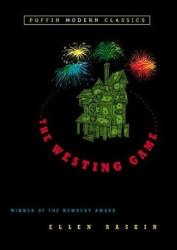
The Westing Game is a very eventful book with lots of twists and turns. It starts out as a novel about an old rich man who ‘died’, Sam Westing. All of his heirs live in Sunset Towers and are competing in a game he made. In his will, Westing claims that one of the people that resides in the tower killed him. All of his relatives get assigned another family member they have to work with as a partner. The groups start finding and solving clues, one leading to another and making each family suspect each other throughout the whole game. His heirs are hoping to gain control of his business and win millions of dollars through the game, which they will split with their partner. I really liked this book because of all the mystery and obscure details that lead you to the answer. Who set the bombs? Who REALLY killed Westing? Why did Turtle cover up for Angela? Did he even die? Are Sam Westing, Sandy McSouthers, Julian Eastman, and Barney Northrup hiding something? The suspense draws you in, and leaves you wanting more and questioning everything. I would highly recommend this book for any young and curious reader.
(Grade 7)
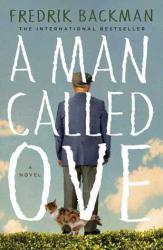
If you consider yourself an experienced reader, you can probably state that there are barely a few books in this world that can touch your heart. You went through hundreds of human fates written on thousands of pages; you can easily predict the plots of love stories or detective novels; you can easily identify what figurative devices the author used here and there to make you feel sad, hopeful or amused. You feel so confident and think that nothing in the literature world can surprise you anymore, but then… you open this book, A Man Called Ove by the Swedish author Fredrik Backman. The main character has nothing to do with standardized cliche characters that we’re used to. It’s an old grumpy man called Ove, who believes that nobody in this world knows how to do their job anymore, but instead everybody tries to get more money for less effort. Not only is he deeply convinced in this, he also never skips a chance to remind this to everybody he meets and to inform them as well which rules they have broken and which lessons they have never learnt. He lives all alone, even his wife has left him, and from knowing Ove for about 50 pages we think we know why. But then the curtain opens for the readers, and we learn a beautiful and tragic story of Ove and his wife Sonja. Two absolutely different personalities, who tied themselves together for life with bonds of love, patience, understanding and selflessness. But now Sonja is gone, she’s gone forever and Ove doesn’t see any sense in life anymore. He tries to commit a suicide several times to reunite with Sonja, but all of his attempts fail once the new neighbors move into the house next to Ove’s. An absolutely clumsy IT-specialist Patrick, his pregnant Iranian wife Parvaneh and two of their daughters change his life and become a barrier for all his pessimistic plans. Unexpectedly and against Ove’s will, he rescues a cat and becomes his owner; takes Patrick to the hospital by his precious car Saab; helps a teenager Adrian to fix a bike for the girl that he likes; lets a homosexual barista, who was kicked out of the house by his very conservative father, stay over; fights for Rune, the man who’s been his main opponent the entire life, against Men In White Shirts; teaches Parvaneh driving a car and buys an iPad for her older daughter. Even though he denies it, Ove becomes friends with the entire neighborhood, remaining just as grumpy, rude and straightforward as he’s always been. One day he almost dies and that puts an end for his attempts to get to Heaven prematurely. He finally realizes that there is life after death (after Sonja’s death) and there is always something to fight for.
An amazing book that will make you laugh and cry. Ove’s sassiness and barbed character will pull up a smile on the readers faces and his endless loyalty to Soja will move even the biggest skeptics.The characters are bright and strong individuals that follow their principles and show us the world of their beliefs, so different, but never false. This novel teaches us the importance of friendship and helping each other. It shows us that even in the darkest times of life we can find light in people around us.
Reviewer Grade: 12
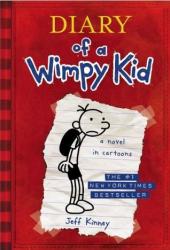
I absolutely love this book series. I started reading Diary of a Wimpy Kid when I was in elementary school when it got recommended to me by a friend. I have no regrets. Even today I still love reading these books. The art in them is exceptional and unique as well as the stories and writing. I have read everyone of these books in the series, but I still think that the first one is a classic.
Greg Heffley is an extremely unique character within the Diary of a Wimpy Kid series. The author of this book gives Greg an almost “cartoony” personality. At first, I didn’t like Greg, but he definitely grew to become my favorite character in the book. The first book in this series introduces Greg and all of the characters and hardships they face. I would 100% recommend this series. If you want to start the series, read this one!
Reviewer Grade: 8
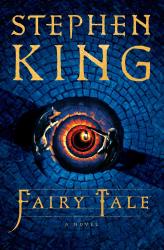
The Lord of The Rings, Harry Potter, Hobbit and The Chronicles of Narnia have already won the hearts of millions of readers of all ages. Fantasy novels with complex plots, written in the understandable even for the youngest readers language, keep older generations excited and thrilled as well. The Fairy Tale by Stephen King can definitely be included in this honorable list. Describing the incredible adventures of Charlie Reade, it takes us to the mystical world and introduces to the ancient evil monsters and brave fighters for freedom.
Everything starts simple enough. The characters are living their ordinary enough lives and dealing with their down-to-earth duties and routines. But everything changes when a 17-year-old Charlie Reade decides to help his old grumpy neighbor. He discovers the door to the hidden world, where life is paralyzed by a curse that erases people’s faces and takes their sensations away from them. An evil tyrant Flight Killer and is the one who stands behind it. And, as it normally happens in fairy tales, Charlie turns out to be the one, whose mission is to defeat the evil, liberate the city of Lilimar and save the fallen princess. Is it truly up to a high-schooler to beat the powerful monster? And what does it have to do with an old ill German shepherd? The Fairy Tale has the answers for all these questions.
The audience gets a chance to dive into the exciting and cozy atmosphere of the good old stories, heard in childhood, and, at the same time, enjoy the complicity of created by King universe and charm of human feelings and behaviors. Classical fairy tale plot and motives make the novel easy and pleasant to read, however, as any fairy tale, it contains hidden moral and promotes eternal values.
Reviewer Grade: 12
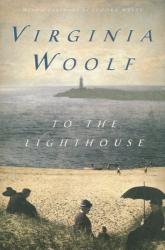
Sometimes, a trip to the lighthouse can take the entire life. Or our life is just one long journey to the lighthouse. Sometimes we don’t even realize how much we are in need of light that we see every night out of the window. We may not even notice how it directs us and helps not to get lost in this misty world. But what happens if this light disappears? We are left with two choices: either go on search of if, following the illusive glance, or find it inside of your soul.
Virginia Woolf’s novel “To the Lighthouse” introduces the readers to the Ramsay’s family and their friends, staying in the summer house in Scotland. As they are going through daily routines, we discover their personalities and stories, so different and unique. They agree and disagree with each other, inspire and discourage, give hope and take it away, create and ruin. Their days flow as usually until the light disappears from the house. It seems like it’s possible to turn everything back and keep the life normal, but everyone can’t help noticing the missing part, until the characters go on their own trips to the lighthouse.
The story is mainly written in a form of reflection. Virginia Woolf lets the readers see the characters and percept the world of the book through two of her main characters’ points of view. It shows, in an unobtrusive manner, how people depend on those whom they are surrounded with. The language of the book is figurative and complex, just as lives of its characters. It plunges the readers into such an atmosphere, where cold Scottish wind keeps your hands numbed, as you are walking down the coast, but the thought of someone caring about you does not let you freeze from inside.
An amazing book that will turn the time of reading it into a very special period of life
Reviewer Grade: 12
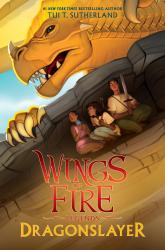
A quick summary of this book is that three kids, Wren, Leaf, and Ivy, all live in a world filled with dragons. Wren was sacrificed to the dragons by her village leaders but she escaped and befriended a dragon named Sky. Leaf wants to slay a dragon and take revenge on the dragons because he believes that the dragons ate his sister, Wren. Ivy is the dragonslayer's daughter and she starts finding the truth about what happened when her father slayed the dragon. Ivy starts to realize that her father is the entire reason the dragons hate humans. When Leaf comes to Ivy's village to seek out the dragonslayer, Ivy and Leaf decide to go to the desert dragons stronghold to find Ivy's lost aunt Rose and return the dragons treasure to them. On the way they meet Wren and together they find out the truth about how the dragonslayer actually killed the dragon and try to make amends for it.
This book was one of my favorite books of the entire Wings of Fire series. It has a ton of amazingly portrayed action scenes. Tui T. Sutherland, the author, did a marvelous job of using imagery to make you feel as if you are in the book. I also really enjoyed how all the books in the series are connected. You see characters from other books such as a Nightwing named Deathbringer, who is from the Dragonet prophecy series and also the second Winglets book. My favorite character is probably Wren because she is so brave, courageous, resourceful, and smart. I also love Sky, Wren's dragon, that she befriends. He is so adorable and kind of funny at times. There was nothing in the book that I didn't like. Over all this book is one of the best ones I have read this year. I recommend this book to anyone who is interested in dragons or fantasy/adventure. (8th grade)
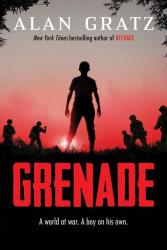
Alan Gratz, bestselling author of Projekt 1065 and Refugee, returns with another thrilling novel about the human side of war. The novel follows two protagonists, the young Japanese conscript Hideki and the teenage American Marine Ray. As World War II rages on, the pair are brought closer and closer together without either being aware, until suddenly their paths cross in one ultimate twist of fate.
Grenade is a gateway for middle school readers to understand the complexity and horrors of war without being pushed towards a more adult story like Saving Private Ryan. The story shows that despite the Japanese and Americans fighting each other at war, the soldiers battling are just people underneath the uniforms (or lack thereof). Gratz weaves mature themes with easily comprehensible language in a way that I find increasingly rare for young adult authors, and it serves his purpose well. As an older reader, I find myself coming back to Grenade for its gripping storytelling and the nuanced characters it conveys. I believe Grenade is a must-read for those interested in history and a perspective not often seen in the United States.
The story of two conflicting ideologies and the events bringing them together, Grenade is a masterfully crafted story of the horrors of war and the importance of understanding others' perspectives.
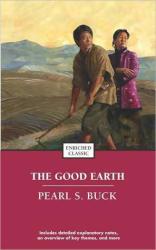
The Good Earth follows a man named Wang Lung accompanied by his wife, O-Lan. This story is told surrounding China in the early 20th century told in a classic rags to riches tale. Important themes are told through this story to express what China in the 20th was going through and challenges the people had to face. Some of these themes include the oppression of women and man’s relationship with the earth.
I have to admit, the first time I read this book I didn’t really like it. After talking to someone about the book, I decided to read it again and recognized its importance. Not only is the book informative, but it’s also an all around good book. There are many different plot points and character development pieces that go into this story. While reading it, it made me think… is this what people had to endure in China in the 20th century? Knowing this, it pulled at my heart strings a little bit. I absolutely love this book and would recommend.
Reviewer Grade: 8
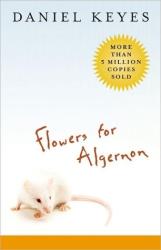
Flowers for Algernon is stunning commentary on the way society perceives intelligence and its connection to personal value. The creative liberties taken with this book to modify diction to match Charlie Gordon's knowledge create a more personal connection with the beloved narrator. I found myself celebrating the first time he used a comma or a metaphor. Although this book was difficult to read at first, I understand that those creative choices enhance the impact of the story later on in the book. The reason I wouldn't call Flowers for Algernon perfect is I feel some of the development in the middle diverted from his climactic conversations with the doctor and professor. The story seems to split into two at once: one of Charlie's emotional intelligence struggling to keep up with his knowledge, and one of his environment's reactions to his sudden genius. Though I enjoy both perspectives, I feel the conjunction creates clutter in what could be one flawlessly streamlined story. However, both stories are executed beautifully, and the journey of Charlie Gordon is both profound and emotionally charged. Flowers for Algernon is certainly a novel I'll mull over in years to come.
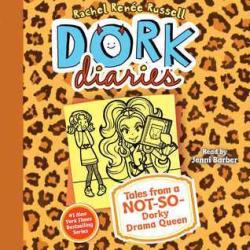
Next to the 1st book in this 12 series collection, this one is hands down my favorite. Nikki goes through a series of events in this book and it is a real attention grabber. I loved these books as long as I can remember, and I picked this one up today and realized how awesome these books are! Even in eighth grade, these books still leave me in a feeling of awe. I HIGHLY recommend these books to anyone looking for an easy to read book series. Considering this is the ninth book of this incredible series, I am not too sure how to sum this book up without spoiling the rest of the story line, but this is a ten out of ten book and the collection as a whole! 10/10 highly recommend!!!!
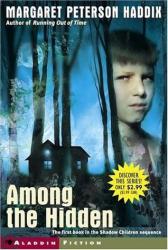
In a future where the Population Police enforce the law limiting a family to only two children, Luke has lived all his twelve years in isolation and fear on his family’s farm, until another “third” convinces him that the government is wrong.
The book is a dystopian world set in present day where teenagers are able to come together in crisis to try and change the government and let their voice be heard. I chose to read this book back in third grade and still remember to this day how good it was. The elements of the book were enticing and had me looking forward to what was next. It gave great arguments of why the government is wrong and how the rich, called “barons,” get to do what they want. As a kid I didn’t have any negative thoughts, and if I were to pick it back up, I would still have good thoughts about it. This book is part of the Shadow Children collection, with seven books in it and each of the books get better. People who enjoy adventure, plot twists, and exploring different perspectives would like Among the Hidden.
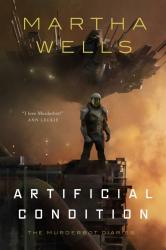
After being disappointed with the length of the first entry in the Murderbot Diaries series, I'm glad that I stuck with it and read the second book, Artificial Condition. While All Systems Red was necessary to introduce the concept of a sentient (and pacifist) murderbot, this book was much more interesting from a narrative perspective. At this point, I'm used to the short length of these stories, but after reading this book now I have to know how the rest of the series plays out.
The titular murderbot in this book felt much more fleshed out (ha ha) as a character. Having moved past the phase where it recognizes that its sentience is an anomaly, the challenge of fitting into society as a murderbot or as a human as the circumstances warranted was much more enthralling. The interactions with other AI like ART were much more entertaining than merely hearing about how the murderbot liked to binge TV shows. Perhaps the fact that much of the exposition covered in the first book is now out of the way, I felt this book didn't feel as much like an info dump.
Now that the murderbot is on its own, the goal of learning about its past is something that is not only interesting to read but provides a lot of opportunities for great action sequences. The author expertly puts the main character in situations where it has to use its AI advantages to make life-saving decisions despite the core code of its being originally designed to kill humans. The amount of character growth from the first book to the end of this one is definitely what will bring me back to finish out this series.
An improvement from the first book in the Murderbot novella series, I give Artificial Condition 4.5 stars out of 5.
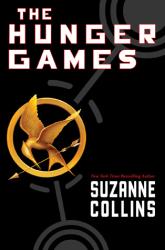
I loved this series! As a big sister, I was hooked the moment Katniss said "I volunteer!" It is a great read about hardship and rebellion. How one person can make a big difference even without intent. I have read it with my oldest and will read it with my youngest at some point. But this is the book that got me reading again and I love to read it over and over.
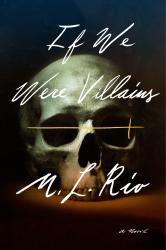
Although I was skeptical at first, I quickly fell in love with the bizarre world of Dellecher and its fourth-year theater students. The worldbuilding and three-dimensional characters transcended expectations. I read this novel in a mere 3 days, and it didn't take long to get me hooked. I'm obsessed the way these students were with Shakespeare. Unfortunately, this beautifully written novel has some glaring flaws that it wasn't poetic enough to cover. The plot started off strong but lost its way in the whirlwind of the theater world. It veered towards a tangled romance before reluctantly wandering back to its roots abruptly before the novel ended. I would've liked more development in any and all realms besides Oliver and Meredith. In fact, I would happily read a series of books detailing these seven students' journey through university. After about six hours spent reading, I feel I only have a vague idea of these characters, and I'm on the edge of my seat for more. Regardless, it was a thrilling ride, and I'm optimistic for Rio's other works.
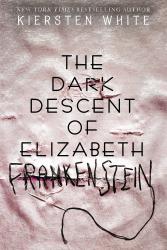
This is a clever, evocative YA reimagining for Mary Shelley's "Frankenstein," told from the perspective of Elizabeth Lavenza. I listened to the audiobook adaptation after a friend recommended the book to me, and it was truly difficult to turn it off/put it down. There are rattling, emotional moments and interesting characterization details throughout, particularly in regard to Victor and Elizabeth's complicated, consuming relationship. Elizabeth's narration is strong, I'd say, and the audiobook narrator (Katharine Lee McEwan) performed different character's voices very well/in a way that helped build the atmosphere rather than detract from it. A lovely book!!

Mehh


